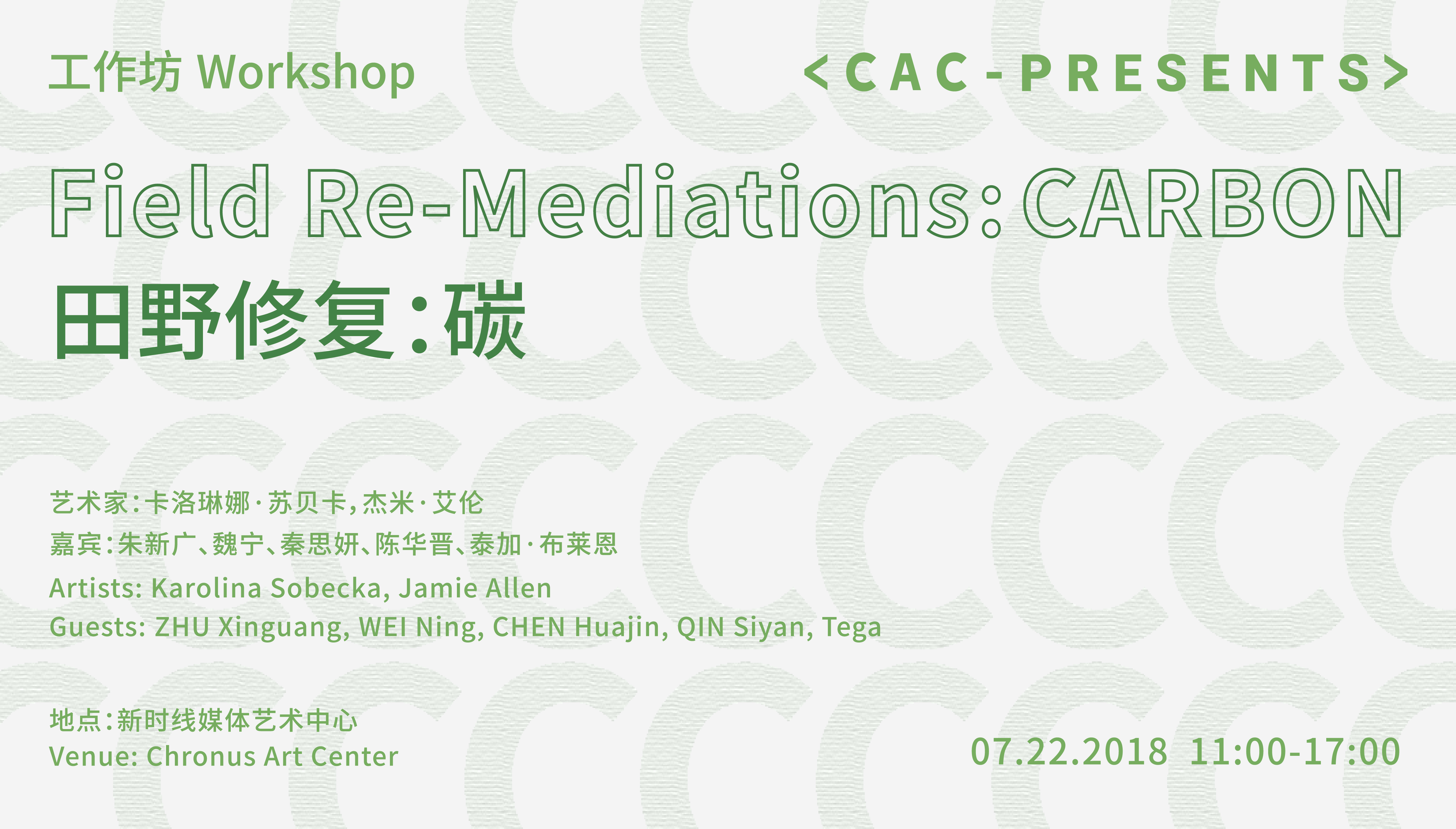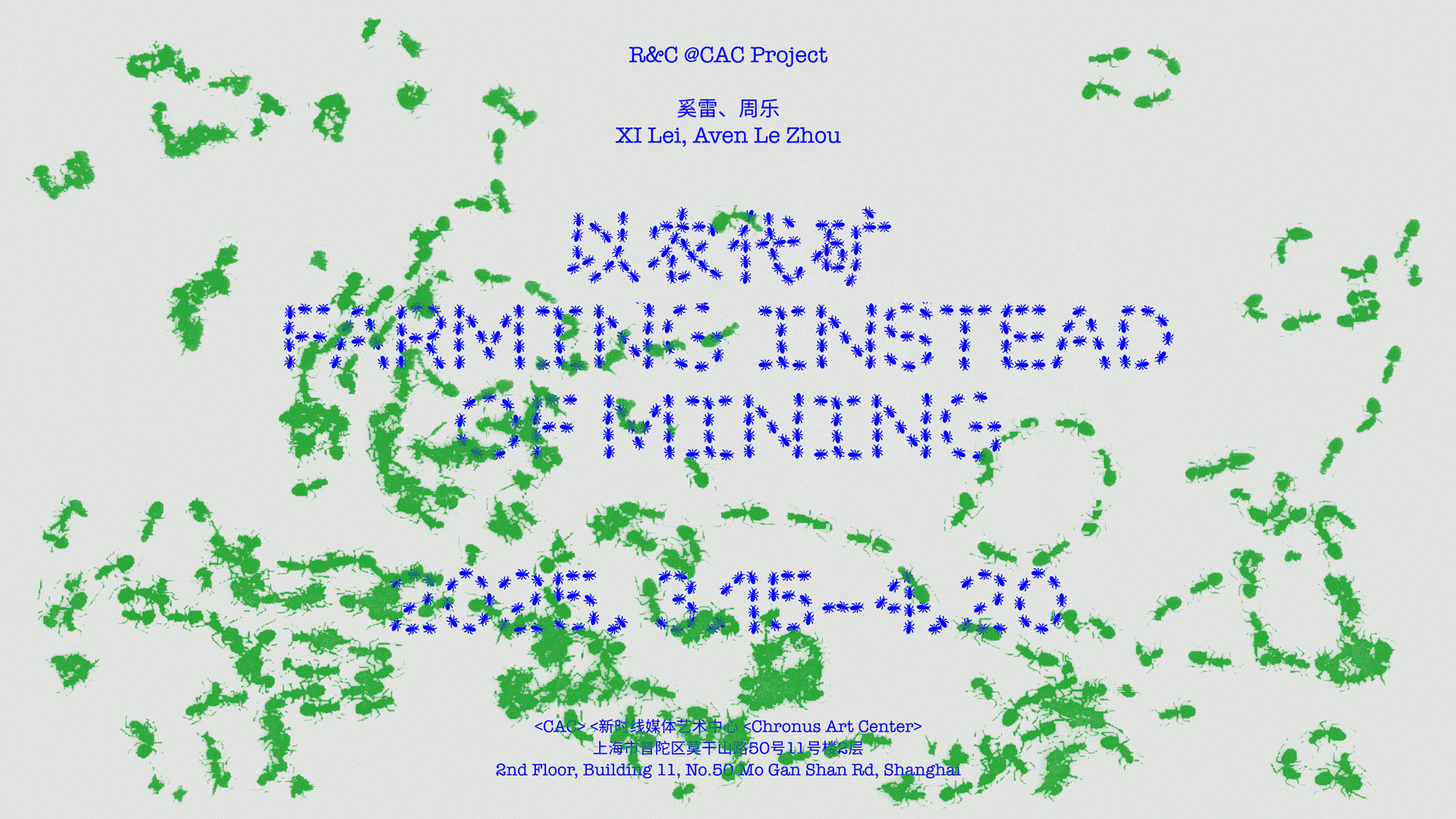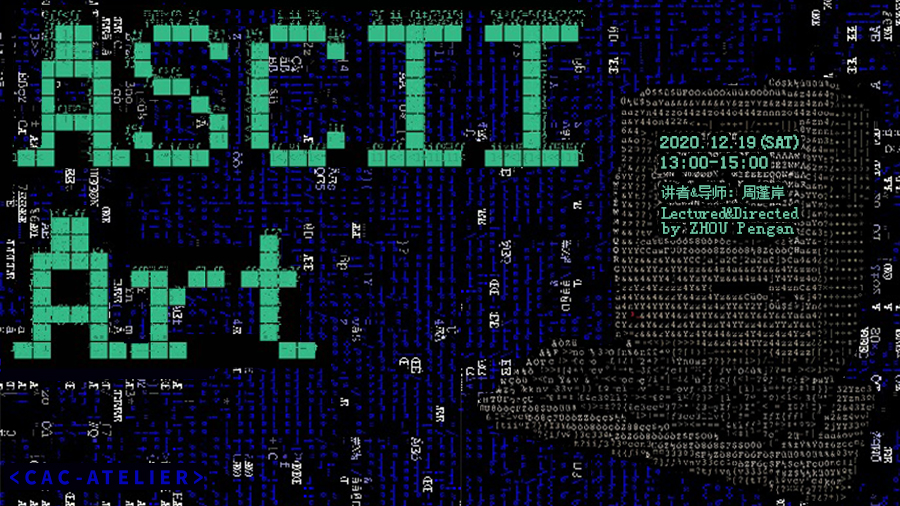
Artists
Karolina Sobecka, Jamie Alle
Guests
ZHU Xinguang, WEI Ning, CHEN Huajin, QIN Siyan, Tega Brai
Language
English/Chinese
Date
July 22, 201
Time
11:00-17:00
Venue:
Chronus Art Center (BLDG. 18, No. 50 Moganshan Road, Putuo District, Shanghai
Supported by Pro Helvetia Shanghai and Swissnex Chin
Free Addmission
* Only 20 seats available, R.S.V.P
On July 22, Chronus Art Center(CAC) will organize a public workshop led by Karolina Sobecka, one of the participating artists of Machines Are Not Alone, in collaboration with Jamie Allen. It will examine how the general public might understand and interact with the carbon cycle in more explicit and perceivable ways, through media, technologies and social practices. The invited guests will share some of their research and practices in relation to the topic of enhancing carbon sink, etc., and will join in hands-on experiments and discussions with the audiences during the afternoon session
About Field Remediations: CARBON
Field Remediations: CARBON is a set of activities, field-visits, experiments, mediations, documentations, and publications on the topic of carbon and the new machinic technologies of carbon remediation, capture, sequestration and storage. Conducted in Shanghai as part of the group exhibition Machines Are Not Alone at Chronus Art Center, the project samples the spectrum of the material practices, opportunities and challenges associated with the development of carbon capture technologies
Field Remediations: CARBON will populate a library installed at the exhibition with objects and materials collected in the Shanghai context that explore technological interactions with the carbon cycle. It will further produce media, documents and a manual, “Closing the CARBON Cycle,” for activities done in the exhibition space and through extended public programming with local partners in China
Field Re-mediations: CARBON looks at carbon sink enhancements known as ‘negative emissions technologies’ (NETS), which include direct air capture, enhanced weathering, ocean fertilization, and soil sequestration. Although much touted and worked on in technological and scientific communities, the sciences and processes of NETS are, to the general public, speculative and futuristic, and so misunderstood. Using the lens of ‘fieldwork’, we are seeking to visit, document and sample the localities, industries and realities of a burgeoning technical and industrial endeavors to capture and sequester waste carbon dioxide (CO2). The goal of our work is to align the science-fiction of carbon capture with the science-fact of its current research and implementations.
< Workshop schedule >
Morning Session
11:00
Introduction to Field Re-Mediations: CARBON Workshop
11:30
Group exercise: drawing the carbon cycle
11:45
Guest presentations
< Break >
Afternoon Session
13:00
Public discussion with the guests
13:45
Source/sink experimentation including mineralizing CO2 from human breath and demonstrating chemical weathering process with basalt
15:00
Discussion of “Closing the CARBON Cycle” sites
15:45
Fieldwork Development
What do we gather on field sites?
What are other sites possible?
What techniques shall we use to populate the new CARBON collection?
What sort of materials, openings and guidance should form part of the machine and activity manual “Closing the CARBON Cycle”?
17:00
Reception, discussion
About the Artists
Karolina Sobecka is an artist working at the intersection of art, science and technology. Her projects investigate what drives technological innovation and shapes the philosophy that inscribes humans in nature. Sobecka's work has been shown internationally and has received numerous awards, including Creative Capital, Rhizome, NYFA, Princess Grace Foundation, Eyebeam, Queens Museum, Vida Art and Artificial Life Awards and Japan Media Festival. Sobecka founded the art and design studio Flightphase, has taught at Rhode Island School of Design, School of the Art Institute of Chicago, School of Visual Arts, University of Washington, and Scripps Institution of Oceanography. She is a doctoral researcher at the Institute for Aesthetic Practice and Theory, HGK FHNW Basel.
Jamie Allen has been an electronics engineer, a polymer chemist and an exhibition designer with the American Museum of Natural History. He experiments with the material systems of media, electricity, and information as artworks, events and writing. Allen is Senior Researcher at the Critical Media Lab in Basel. His Ph.D., under the supervision of Siegfried Zielinski and Avital Ronell, was awarded in 2015 (summa cum laude) by the European Graduate School. He is the co-founder of the media, art and philosophy journal continent. He is a Canada Research Chair in Infrastructure, Media & Communications.
Special thanks to Pro Helvetia Shanghai and the strategic support from Swissnex China





